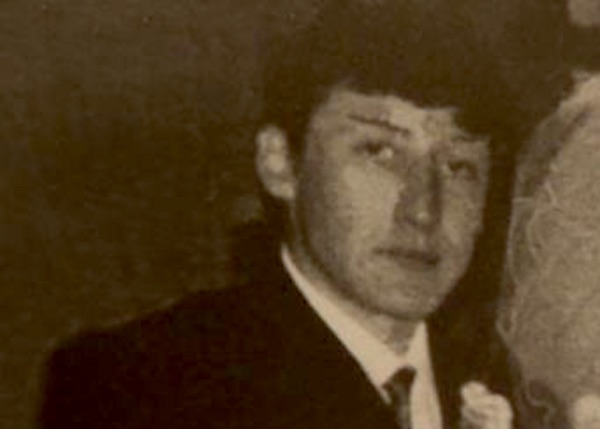
Senior republican Eddie Copeland has asked for a new inquest into the death of his father.
John Copeland, an unarmed civilian, was shot by a British soldier during rioting in Ardoyne in north Belfast in 1971. At the time, the soldier falsely claimed Mr Copeland was armed and had opened fire on a British Army patrol.
But a draft report by the Historical Enquiries Team obtained by his family disputes that version of events. The report also says the RUC failed to properly investigate the killing.
Mr Copeland was shot close to his home in Strathroy Park, Ardoyne, on 28 October, 1971. The 23-year-old died from his injuries two days two days later.
He was the sixth civilian to be killed by soldiers from the ‘Green Howards’ regiment in the Ardoyne area that year. An inquest into the killing in 1972 returned an open verdict.
The draft HET report says the RUC police failed to interview three civilian eyewitness who told the inquest that Mr Copeland was not carrying a gun when he was shot.
The RUC also did not to interview the soldier who shot him or two of his colleagues who claimed to have seen what happened. That was because of a private agreement between the British Army and the RUC at the time that only the Royal Military Police would interview soldiers involved in fatal shootings.
The RUC was supposed to conduct all other aspects of the investigation, including interviews with civilian witnesses.
“What could have been done, and what should have been done, at the very least, was to have the soldiers re-interviewed as soon as it became apparent to the investigating officer that there was conflict between the accounts given by civilian witnesses and those given by the soldiers,” says the HET report.
It says the agreement between the British Army and RUC “brought about major failings in the investigative process, to such an extent that it rendered it ineffective”.
The report also says there is no evidence of any scientific tests for firearms residue to establish whether Mr Copeland had fired a gun.
The soldier who fired the fatal shot is still alive. Using the pseudonym Nicky Curtis, the soldier has written of his time in the military, and in particular his tours of duty in the Ardoyne area. In one passage, he says the British Army’s rules of engagement outlining when soldiers could open fire “seemed increasingly like a joke to me”.
The report has been welcomed by John Copeland’s widow, Carol, who spoke to him while he was in hospital after being shot.
“He told me he was shot in the back, he said he seen the soldier and he turned, and your man shot him, he said he was shot in the back,” she said.
“He had nothing in his hand and he wasn’t a gunman, to me they were shooting anybody that night.”
Eddie Copeland, who was 11 months old when his father was killed, was himself seriously injured when shot twice by a British soldier in the Ardoyne area in 1993.
Mrs Copeland says she does not believe Soldier A will face prosecution.
“I don’t think I’ll ever live to see it, but I would love to see it, and I would love the soldier that done it to be brought to justice because he took the life of a young man, that’s all I would like,” she said.
The campaign group, Relatives for Justice, which has worked with the Copeland family, has called for a police investigation.
The group’s case work director Mike Ritchie says “it is extraordinary that such a grave injustice has been allowed to fester for so long”.
“We want to see a proper independent police investigation and the soldiers responsible must be made accountable,” he added.
![[Irish Republican News]](https://republican-news.org/graphics/title_gifs/rn.gif)
![[Irish Republican News]](https://republican-news.org/graphics/title_gifs/harp.gif)

